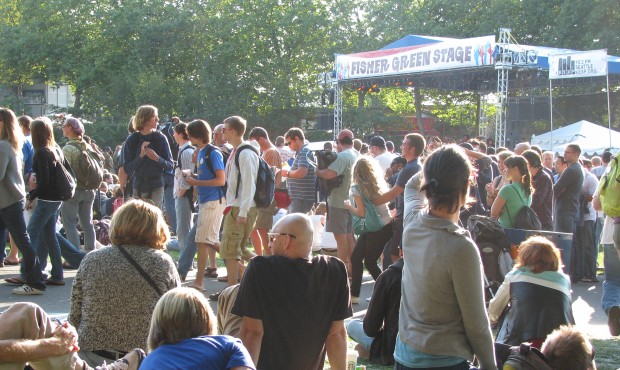WA workers receive extra breaks to keep cool in the extreme heat
Jul 27, 2022, 12:07 PM

(Photo by David L. Ryan/The Boston Globe via Getty Images)
(Photo by David L. Ryan/The Boston Globe via Getty Images)
People who work outdoors in the Puget Sound area are getting their first paid “heat breaks” of the year Tuesday, July 26.
Every year from May through September, employers in Washington are required to take steps to protect employees working outdoors from heat illness. Temperatures above 89 degrees call for mandatory ten-minute breaks, in the shade, a misting station, or air-conditioning every two hours.
High Temperature Records Fall Tuesday – Will There Be More?
“Water, shade, rest, and close observation can help save workers from the real risks of serious heat illness this week. It’s incredibly tough to be outdoors working in this heat, so we are urging caution and will be out enforcing these rules statewide,” said Craig Blackwood, assistant director, L&I’s Division of Occupational Safety and Health.
The new rules require employers to ensure:
- Enough cool water is available so that each worker drinks at least a quart (about one liter) every hour.
- Enough shade is available to fully cover workers during a break; or employers can use alternatives to shade like an air-conditioned trailer.
- Workers are encouraged and allowed to take paid cool-down breaks when they start to feel overheated and paid mandatory 10-minute breaks every two hours to cool down.
- Observation of workers and communication methods in place to detect and respond to signs or symptoms of heat illness.
State Labor and Industries Spokesperson Dina Lorraine says workers can make anonymous complaints to Labor and Industries if they are not getting the heat and smoke considerations required by law.
“If an employee feels like their boss isn’t allowing them the cooldown time they can submit an anonymous complaint and it’s not like we come out to the site and instantly shut things down or fine them, we just make sure we are communicating the laws to businesses in a way that they can embrace these laws as ways to protect their workers,” Lorraine said.
She says more employers comply because workers who suffer from heat illnesses on the job are covered under workers’ compensation and claims can mean extra expenses for employers.
“We haven’t had worker deaths in Washington due to the heat. Last year with the record heat we had a few workers with heat illness cases, but we were very happy to find that for the most part businesses are good about following this regulation because they want to protect their workers and themselves for any legal issues.”
Find more information on the emergency requirements and Outdoor Heat Exposure rules here.













